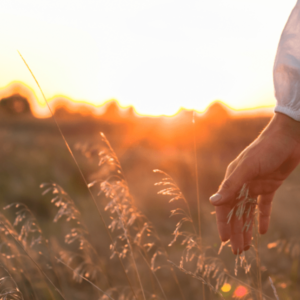What is mindfulness, and what can it help us to understand?
- What is mindfulness?
Mindfulness is often defined with words such as ‘awareness’ and ‘living in the moment’. It sounds simple, maybe, but putting it into practice is no easy feat. We tend to race through our lives, rarely giving ourselves time to have clear minds. We often lose ourselves in our memories, dreams and thoughts. We spend time wondering why a co-worker looked at us a certain way, and what we should have done in a certain situation but didn’t.All of this thinking causes us to miss out on a lot of our lives. It’s like watching our lives slide past us, without taking part, and that is not a nice feeling. Mindfulness teaches us to be present in our lives, no matter what we are doing: when we are showering, eating or talking to someone. According to Dutch mindfulness trainer and psychologist Roeland Schaddelee, it’s a way to pay attention in a curious, open-minded and non-judgmental way. - What does it do?
We don’t realize how much our thoughts jump around until we meditate. “My students often say that they just can’t meditate,” Schaddelee says, “that thoughts keep popping into their heads. This is completely normal, and it is a misconception that your head has to be empty. Our brains never shut off; they are designed to think. Thoughts will automatically crop up, even when you meditate. Mindfulness is about how we relate to our thoughts. When worrying thoughts start flooding your head, you can learn to greet them with a friendly nod, as if they were just passing by. As paradoxical as it seems, this actually helps calm the storm in our minds. Thoughts only get bigger when we fight them, and subside when we leave them alone.” - How can we slow these thoughts down?
It feels a bit unnatural to just ignore your thoughts. Thoughts often present themselves as the ultimate problem-solvers, so we tend to take them seriously. As British playwright William Shakespeare wrote in Hamlet, ‘There is nothing either good or bad, but thinking makes it so’. Our thoughts dramatize situations—blow them out of proportion—and before we know it, we end up in a spiral of thoughts that doesn’t lead anywhere. In the meantime, the beauty of life passes us by, unnoticed.Mindfulness gives us a tool to step out of our worrying minds and focus on the things that really matter. Dutch mindfulness expert Marisa Garau has a great way of describing what happens next: “It’s the same as turning the radio off; suddenly you can hear the birds singing. It’s like a wall of sound has been torn down, and you have opened a door to reality and see things the way they really are.”
- You can read more about mindfulness and what it does in our special Flow 19 Days of Mindfulness.
Text Otje van der Lelij Photography Getty Images














